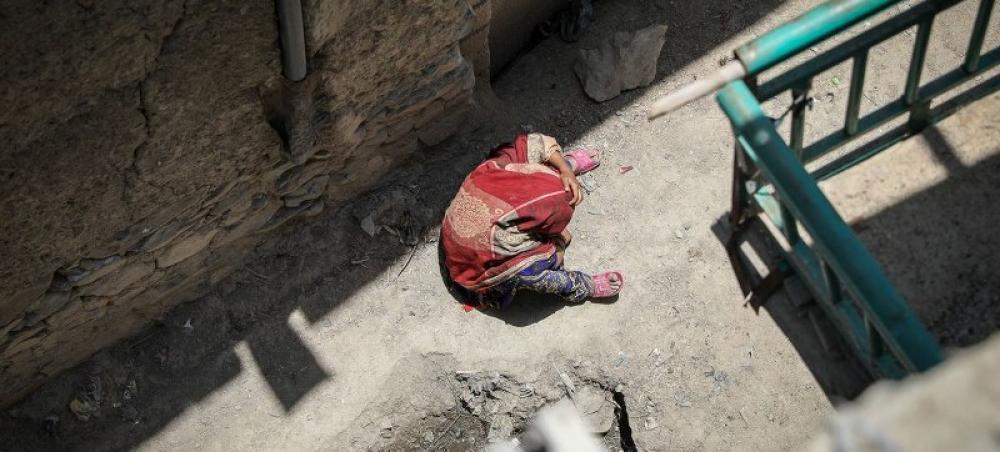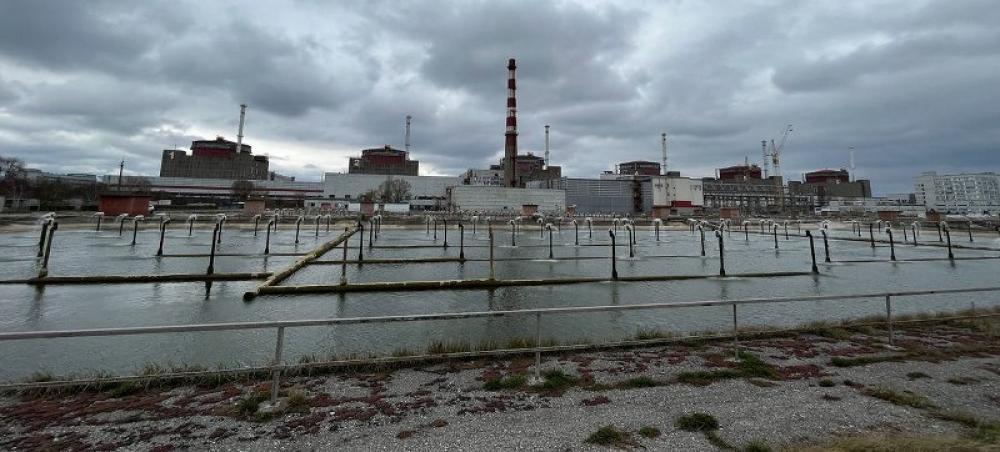Just Earth News | @justearthnews | 30 Apr 2020, 07:38 am Print

New York/IBNS: Syria desperately needs a nationwide ceasefire to enable its war-weary citizens to access the equipment and resources necessary to combat COVID-19, the UN’s top envoy for the country told the Security Council on Wednesday.
“We cannot afford hostilities which would surely lead to another surge in displaced vulnerable communities”, Geir O. Pedersen said via video-teleconference. “We could not afford this scenario before the pandemic; the price could only be higher now”.
Dozens reported killed in Afrin
Just yesterday, a bomb detonated in a crowded market on the country’s Turkish border in the north-western city of Afrin, reportedly killing more than 40 people.
The governor of the neighbouring Turkish border province of Hatay said a fuel tanker rigged with a hand grenade exploded amidst the crowd.
Secretary-General António Guterres strongly condemned the “horrific bombing” and extended his “heartfelt condolences to the families of those who lost their lives”
The UN chief reiterated his called for “a complete and immediate ceasefire throughout Syria to enable comprehensive efforts to address COVID-19”, adding that “those who violate international humanitarian and human rights law must be held accountable”.
The Regional Director of the UN Children’s Fund (UNICEF), Ted Chaiban, said it was “tragic that 11 children were reportedly killed and many more were injured”, adding that “the death toll might be much higher”.
Back in 2018, an escalation of violence in Afrin drove nearly 56,000 children to other parts of Syria, and 10 years into the brutal conflict, “children continue to be hit the hardest by unprecedented levels of violence, destruction and death”, he said. “Violence breeds more violence”.
Meanwhile, the UN Special Envoy told the Council he had been speaking with a range of key players involved in talks to end the more than nine year civil war, to facilitate progress on the political track and to sustain ceasefire arrangements.
The envoy welcomed the “significant calm” in much of the country pointing out that Russian-Turkish arrangements, including joint patrols, in the northwest have made “a positive difference on the ground” and that ceasefire arrangements between Russia, Turkey and the US in the northeast also “continue to broadly hold”.
But he conceded that there is “an uneasy and fragile calm” in the north, with looming escalation risks, such as a resurgence by ISIL extremists, and Israeli airstrikes in Homs and Damascus, which were reported on Monday.
Fighting COVID as one
COVID-19 caseloads in Syria have been relatively low, with 42 cases reported in Government-controlled areas thus far; one case in the north-east and none reported in the north-west; but Mr. Pedersen maintained that the trend lines would be important to monitor in the coming weeks.
While the Syrian Government, the opposition and other de facto authorities are taking significant steps to combat the virus, a lack of sufficient testing, health professionals, medical equipment and supplies are hamstringing the response.
“The healthcare system is degraded in some areas and destroyed in others”, explained Mr. Pedersen, reiterating the need for “full, sustained and unimpeded humanitarian access”.
Women under pressure
The Women’s Advisory Board emphasized to the UN envoy that women are at the forefront of community-based initiatives, raising awareness and preventing the COVID-19 spread as well as carrying additional caregiving responsibilities at home due to the movement restrictions.
The board consists of diverse women from civil society, as an independent source of expertise. Mr. Pedersen said members were concerned over the heightened risk of domestic violence during home isolation and that COVID-19 responses would gradually push women back into traditional and marginalized roles.
Take the ‘responsible path’
Mr. Pedersen reiterated his appeal for “a nationwide ceasefire and an all-out effort to ensure that Syrians across the country will have access to the equipment and resources needed to combat and treat COVID-19”.
He offered to work with the all the “relevant players on the ground” and countries with influence.
Working together in a common effort to support calm and scale up the pandemic response “is the only responsible path”, according to the UN envoy.
“There is no military solution to the Syria crisis”.
“We must act on our common humanity, help build trust and confidence…to move towards a political settlement that can meet the legitimate aspirations of the Syrian people”, he concluded.
‘Tragedy beckons’
In an afternoon briefing to the Council, Emergency Relief Coordinator Mark Lowcock warned that if the coronavirus pandemic behaves in Syria as it has elsewhere, “then tragedy beckons”.
“We cannot expect a health care system decimated by almost a decade of war to cope with a crisis that is challenging even the wealthiest nations”, he stated. “We cannot expect mitigation measures to succeed where millions are displaced in crowded conditions, without adequate sanitation, and no assets or safety net to fall back on”.
While noting a “modest increase” in testing capacity, Mr. Lowcock maintained that it remains “vastly insufficient”, and is a humanitarian priority.
COVID-19 “compounds the impact of Syria’s severe economic crisis”, according to the relief chief, who relayed that according to the World Food Programme (WFP) over the past year, basic food prices have jumped more than 100 per cent.
And despite the ceasefire, the humanitarian situation in the north-west remains as “dismal as it has ever been” with “alarming” levels of stunting and malnutrition among pregnant and breastfeeding women.
“It is simply impossible to sustain the scale and scope of assistance into the north-west without the cross-border operation”, he asserted, “there is no alternative”.
- UN warns of record civilian casualties in Ukraine amid ongoing conflict with Russia
- US imposes 35 percent tariff on goods imported from Bangldesh, interim govt calls the measure 'unjustified'
- ‘Cooperation is humanity’s greatest innovation,’ UN chief declares at BRICS summit
- Benjamin Netanyahu nominates Donald Trump for Nobel Peace Prize
- Marco Rubio, ex-US President Barack Obama wish Dalai Lama on his 90th birthday






